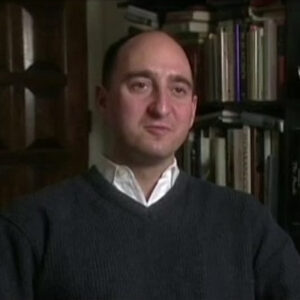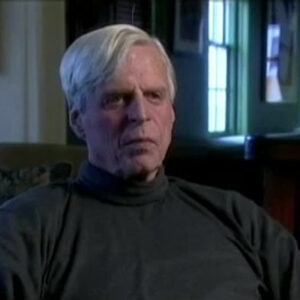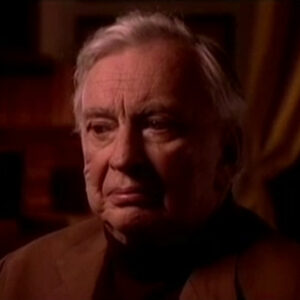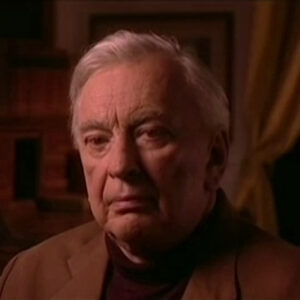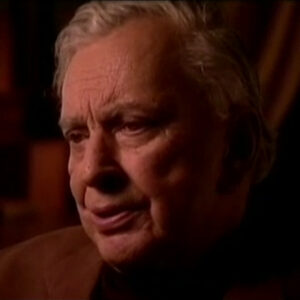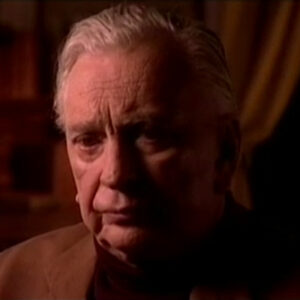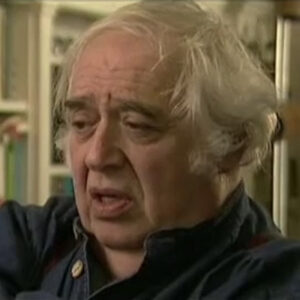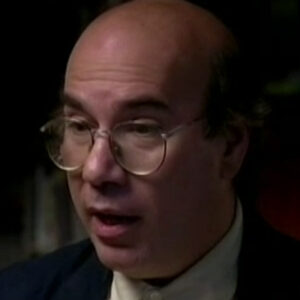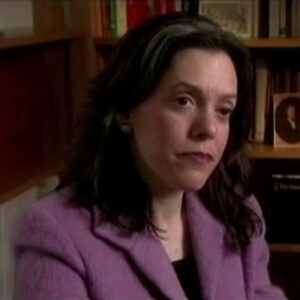Speaker Garrido’s reputation among scholars is of an agent provocateur. I mean, he’s a lively. Well, and he mind, but very, very much enslaved by certain old prejudices, and he sure uses history to serve his purposes. What would those be, his purposes are really to, I think, to do him justice. He’s been deeply disappointed in America. I think he thinks that the United States started out very promisingly. But then in the course of time, it’s been corrupted by big business, by imperialistic aspirations, by demagoguery and so on. And it’s valuable as being an agent provocateur. It’s not and not valuable. Function because I think he plays a role in making people re-examine what they’ve always regarded as their certitudes. But I think he is general line does not command great regard in the scholarly community.
Speaker How would you describe that line?
Speaker The I think he thinks that. They. They say that in the course of time, America has become corrupted from its original purposes. Actually, if you look back in the 70s, that is that was not a fact that the newspapers are far more irresponsible, reckless and defamatory in 1790 than they were today. Alexander Hamilton conducted a famous affair with Mrs. Reynolds and about which and Hamilton himself confessed and so on. Jefferson may have had an affair with Sally Hemings. The notion of a golden age is a historical illusion. I think he thinks that the United States is now out to establish world empire. You think FDR knew about the Japanese attack on Pearl Harbor and sacrificed the Pacific fleet in order to get us into the Second World War? Actually, you know, this is if FDR knew that a Japanese task force was heading toward Pearl Harbor, toward Hawaii, all he had to do was intercept the task force 200 miles off Hawaii. The notion that FDR loved the Navy, had been assistant secretary of the Navy during the First World War, would have stood by and watched the Pacific fleet and thousands of sailors destroyed when he could have. Intercepted the fleet, the Japanese task force, before it had a chance to strike is ridiculous, and the United States has never been really an imperial power in the sense that Britain, France or Rome or in other words, that they were colonizing powers. They were the Romans and the British and the French and the outposts of Empire themselves, we’ve been we’ve never had your yearning for colonization of remote places. We do not send our younger sons exotically to do one another on the outposts of empire and so on. We would like to establish political economic influence. But we’re basically isolationist, but in political terms, and that requires only a sense that the republic is in danger to get as much interested in the outside world. So I think Gore Vidal plays a great role as a popular entertainer, as a national provocateur, but I don’t think he’s very persuasive in hand.
Speaker What about his role, uh, as a sort of historical iconoclast? Showing us, you know, that our founding fathers, as much as I do think he admires them tremendously and he’s a great Jeffersonian, but he also shows another side of Jefferson that disturbs him. And even Lincoln, I think, is a very. Fascinating.
Speaker I thought portrait do I thought is, but I’ve had it in Lincoln Book with most of its historical fictions. You know, our presidents are not demagogue demigod. They are human beings like the rest of us. Well, even Lincoln, the greatest of our presidents, the best writer among our presidents, the deepest, deepest and most perceptive intelligence among our presidents, even he was fallible. And that’s the way people are. I think a balanced picture would certainly be good shadows as well as your eyes.
Speaker Anything else, but even if we got nothing else thrilled, I did want to ask you a few more questions. Um. Do you think people are offended that Gore offers such pointed criticism of the United States while living in Italy?
Speaker I do think I wonder whether this would be starting like a. OK, we’re good. Do people are people offended because Gore Vidal criticized the United States while living in Italy? No, no, I don’t think so. I don’t think that’s an issue. Very few people know that he lives in Italy anyway. And there’s a long tradition of public criticism of the United States coming from expatriates. Its expatriates are often isolationist that they.
Speaker As Gordon Oriels and. I don’t think this is an issue.
Speaker I probably would have had more people living in the United States.
Speaker He told us about a conversation he had with you after your experience in the Kennedy administration in which you said that many facts you read about in newspapers, the keepers of the record, were different than what you knew to have happened. Do you remember this? I don’t remember. Well, let me ask you another. One of the stories that we talked to said, you know, there’s no such thing as the capital t truth in history. I mean, how how does one.
Speaker Responsively. Narrate history, do you think that there’s a role for blending fiction and history?
Speaker Well, I think that that I do not think there’s a role for blending fiction in history. History has established itself on the basis of substratum of facts. The facts can carry you only so far, the facts you choose and form a pattern that represent a pattern in your own mind. And so the question that the movement from facts to interpretations is a very swift movement and your general slant on life. And as William James said, temperaments determine philosophies. Your general slant life will control the facts that you make. Every man, even historians, are prisoners of their own experience. So that history ends up as a great Dutch historian Peter Hale once said, history is an argument without end. And that’s what his history is. Great fun and a great, great fascination.
Speaker Do you think Gore courts controversy or enjoy enjoys his role as a provocateur?
Speaker Yes, of course he does. How does the Guard enjoy his role as a proper agent provocateur?
Speaker Of course, he knows he loves it and he’s very good at it. And it’s good for America that he comes back and utters even nonsense. And he does it with style and wittily and it’s very enjoyable, I think I think he makes you think. He makes people think we examine some of their old assumptions. He also irritates a lot of people. And in a democracy, your attempts very often useful. And then in general, he’s a more popular entertainer than he is a serious commentator.


